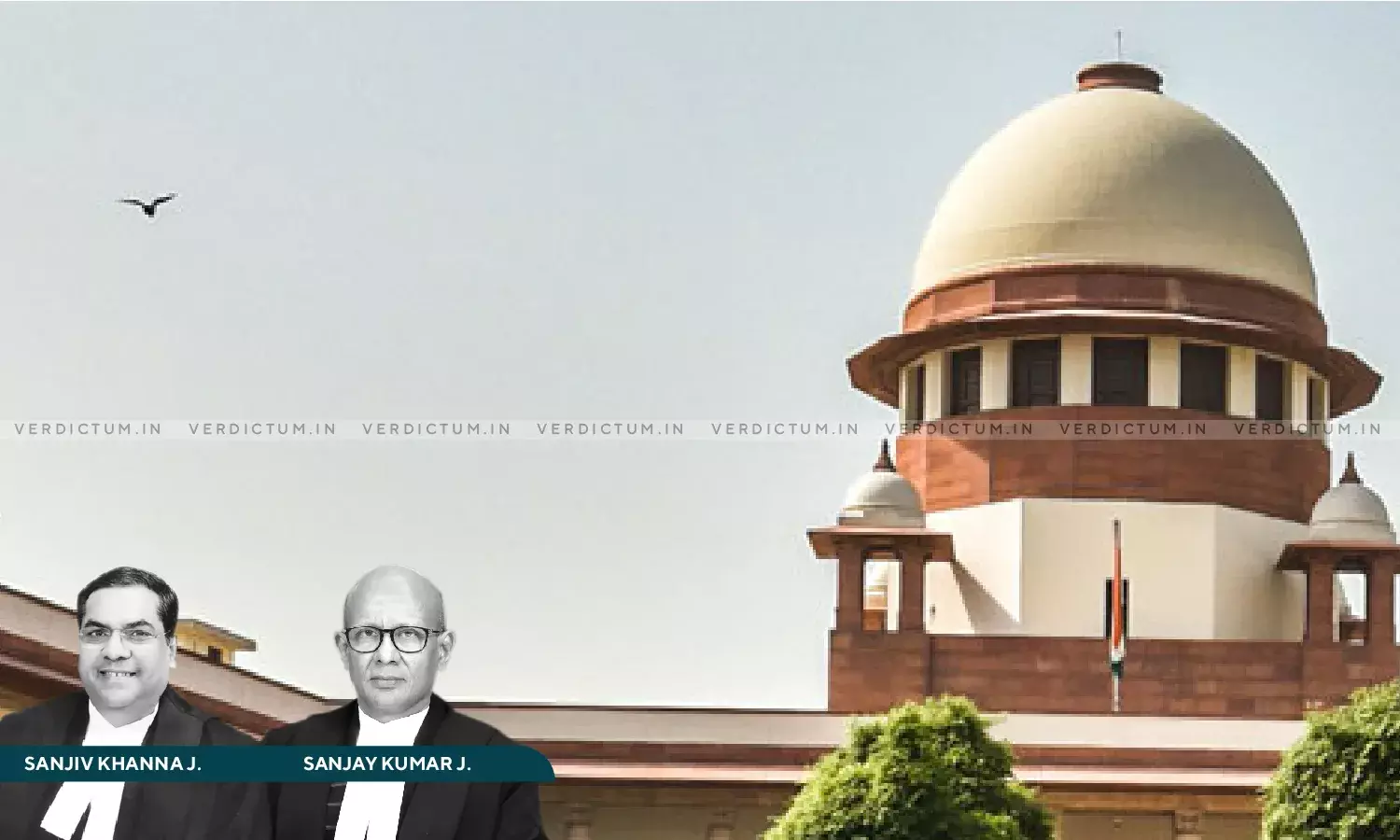Writ Petition Should Be Dismissed Without Considering Merits Of The Claim If There Is No Candid Disclosure Of Relevant & Material Facts: Supreme Court
The Supreme Court reiterated that if there is no candid disclosure of relevant and material facts or the petitioner is guilty of misleading the Court, his petition should be dismissed at the threshold without considering the merits of the claim.
The Court also observed that a writ petition should be preferred within reasonable time, the reasonableness of which would depend on the facts and circumstances of the case and the relief prayed for.
The Bench of Justice Sanjiv Khanna and Justice Sanjay Kumar noted, "if there is no candid disclosure of relevant and material facts or the petitioner is guilty of misleading the Court, his petition should be dismissed at the threshold without considering the merits of the claim.."
On the delay and laches aspect, the Court said: “A plea of delay and laches would not be merely technical when facts are in dispute as, over time, evidence may dissipate and materials, including Government files, may become increasingly difficult to trace. Further, individuals with knowledge of the case may move on or become unavailable. The situation is exacerbated for Government servants, as they face transfers and superannuation. Further, such deserving dismissals on delay and laches serve a larger purpose, as time would not be spent unnecessarily on stale and nebulous disputes, enabling Courts/Tribunals to deal with and decide active pressing cases.”
ASG K M Nataraj, Senior Advocates S. S. Naganand, Raghavendra Srivatsa and Balbir Singh appeared for the parties.
An appeal was filed before the Court, assailing a judgment passed by the Karnataka High Court allowing a writ appeal and directing HMT Ltd. to vacate and to hand over an identified land to the Respondents herein. The Division Bench had ordered that in the event its directions were not complied with, the respondent Nos. 1 to 4 in the appeal would be jointly and severally liable to pay rental compensation till the land was redelivered to the appellants/writ petitioners. The Division Bench concluded by stating that this would be an equitable remedy given the facts and circumstances of the case. The orders of the Division Bench of the High Court were subjected to challenge by HMT Ltd., on the one hand, and by the Union of India and its officials in its Defence department, on the other.
The prayer of the respondents herein, viz., the petitioners in the Writ Petition, was to direct the respondents therein to pay rental compensation from 1973 till date and to continue to pay the same till the unacquired portion of their land was delivered to them to direct delivery of the unacquired portion of their land.
The Court said that the Respondents/Writ Petitioners did not disclose relevant facts in their writ petition, i.e. there was no mention of the sale by or the fact that the land sold was the extent of land released by the Ministry of Defence.
The Court observed, “The respondents/writ petitioners cleverly withheld the aforestated details so as to maintain their claim against the Union of India and its Defence department, the original respondents in the writ petition. The litigation however took a different turn with the impleadment of HMT Ltd., but it appears that no steps were taken to amend the prayer in the writ petition which remained focused only on the original respondents therein.”
It also noted that the Respondents/writ petitioners repeatedly changed their stands and manoeuvred their position to suit their advantage. Further, the respondents/writ petitioners slept over the matter for decades together, which, in itself, indicated the lack of merit, and they should have, therefore, been prevented from raising issues that were stale and forgotten, the court held.
It further observed that a writ petition should be preferred within reasonable time, the reasonableness of which would depend on the facts and circumstances of the case and the relief prayed for. The Court noted that delay by the authorities, at times, may constitute a cause of action in itself. This would be especially true in the case of a live and continuing cause of action or in the event of failure to perform a mandatory statutory duty. It is, however, equally true that there can be cases where delay and laches would be fatal and can result in the dismissal of the writ petition.
The Court held, “Though the respondents/writ petitioners would now seek to place reliance on some internal correspondence of the Ministry of Defence, Union of India, and the survey maps drawn up pursuant to the orders of the High Court, we are of the opinion that these documents do not merit consideration. Such orders were passed in ignorance of the full facts of the case and the patent lack of bonafides on the part of the respondents/writ petitioners. Further, the correspondence now produced would necessarily have to be examined in the context of its genesis and foundation and cannot be relied upon, at this stage, without proper proof.”
Accordingly, the Court allowed the appeals, and consequently, the writ petition filed by the Respondents herein was dismissed in its entirety.
Cause Title: HMT Ltd. v. Smt. Rukmini and Ors. (Neutral Citation: 2024 INSC 728)
Appearances:
Appellant: ASG K M Nataraj, Senior Advocate Balbir Singh, AORs Ankit Kumar Lal, Advocates Akshay Amritanshu, Naman Tandon, Samyak Jain, Mukesh Kumar Maroria, Mohd Akhil, Sharath Nambiar, Anmol Chandan, Ashok Kumar Panda, Manish and Sabarish Subramanyam.
Respondents: ASG K M Nataraj, Senior Advocates S. S. Naganand, Raghavendra Srivatsa, Balbir Singh, AORs Ashok Bannidinni, K. V. Muthu Kumar, Anil Kumar, Advocates M. R. Vijayakumar, Balaji G. Naidu, S. G. Prashanth Murthy, Mallikarjun S. Mylar, Joseph Chaluvaraj, Sandeep R, Betsara Mylliemngap, Sarita Kanwar, G. Balaji Naidu, A. Manjunatha, S.G. Prashanthmurthy, Dinesh Babu V J, Pramodh Kumar, and others.












